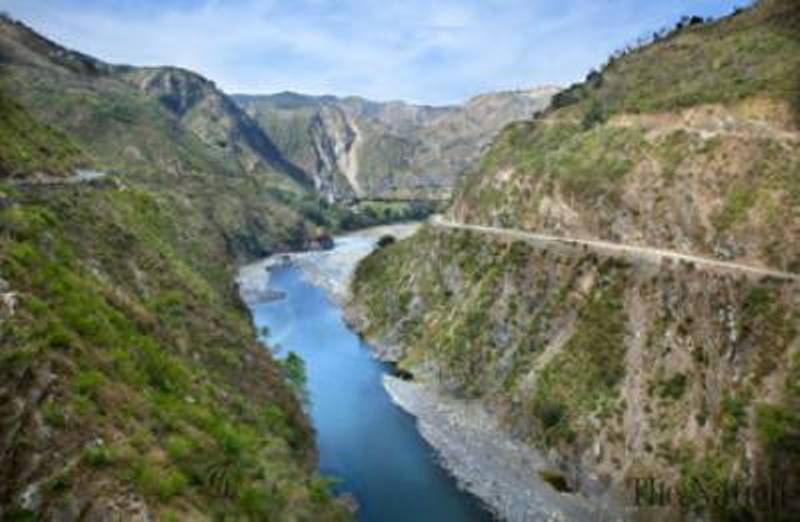Share of Indus Water to be stopped to Pak
NEW DELHI, Nov 25:
India has decided to fast-track three projects, including construction of two dams, to arrest the unutilised water of its share under the bilateral Indus Waters Treaty with Pakistan, Government officials said.
The three projects include the Shahpur Kandi dam project, a second Sutlej-Beas link in Punjab and the Ujh Dam project in Jammu and Kashmir, they said.
“These (three) projects were stuck in red tape and inter-state disputes. But it has been decided to expedite the execution of these projects,” one of them added.
Under the Indus Waters Treaty, waters flowing in three of Indus tributaries — the Sutlej, Beas and Ravi — have been allotted to India; while the Chenab, Jhelum and Indus waters have been allotted to Pakistan.
Of the total 168 million acre-feet, India’s share of water from the three allotted rivers is 33 million acre-feet, which constitutes nearly 20 per cent.
“India uses nearly 93-94 per cent of its share under the Indus Waters Treaty. The rest of the water remains unutilised and goes to Pakistan,” an official added.
The Ujh dam is a proposed hydroelectricity and irrigation multipurpose project in the Kathua district of Jammu region over the Ravi river with a capacity to generate 196 MW of electricity.
The total water utilisation from this project is 172.8 million cusec metre (mc), but it has the capacity to store 925 mcm of water, the officials said. The estimated cost of the project is Rs 5,950 crore.
The Jammu and Kashmir Government has forwarded the Detailed Project Report (DPR) to the Centre for its appraisal, which is expected to be okayed by the Advisory Committee of the Ministry of Water Resources for clearance, they said.
After the Uri attack in Kashmir in September 2016, the Government had sought to use the Indus Waters Treaty to put pressure on Pakistan. The measures included effectively using India’s share of waters that flow into Pakistan. This also included fast-tracking irrigation and hydropower projects by resolving the inter-state disputes.
The Centre has also asked the Punjab Government to prepare a feasibility report of the second Ravi-Beas link that is expected to further help in increasing utilisation of India’s share of water under the treaty.
In September, the Punjab and the Jammu and Kashmir Governments had signed an agreement to resume works on the Rs 2,793-crore Shahpur Kandi project.
Though the work on the project began in 2013, it was halted due to certain issues raised by the J&K.
The Punjab Government also submitted a revised cost estimate of Rs 2,793.54 crore and requested the Centre to include the project in the prioritised list of the Pradhan Mantri Krishi Sinchai Yojana (PMKSY)/Accelerated Irrigation Benefit Programme (AIBP) projects.
The project, when implemented, will enable the up-stream Ranjit Sagar Dam project power station to act as a peaking station, besides having its own generation capacity of 206 MW and irrigation benefit of 37,173-hectare to Punjab and J&K. (PTI)


